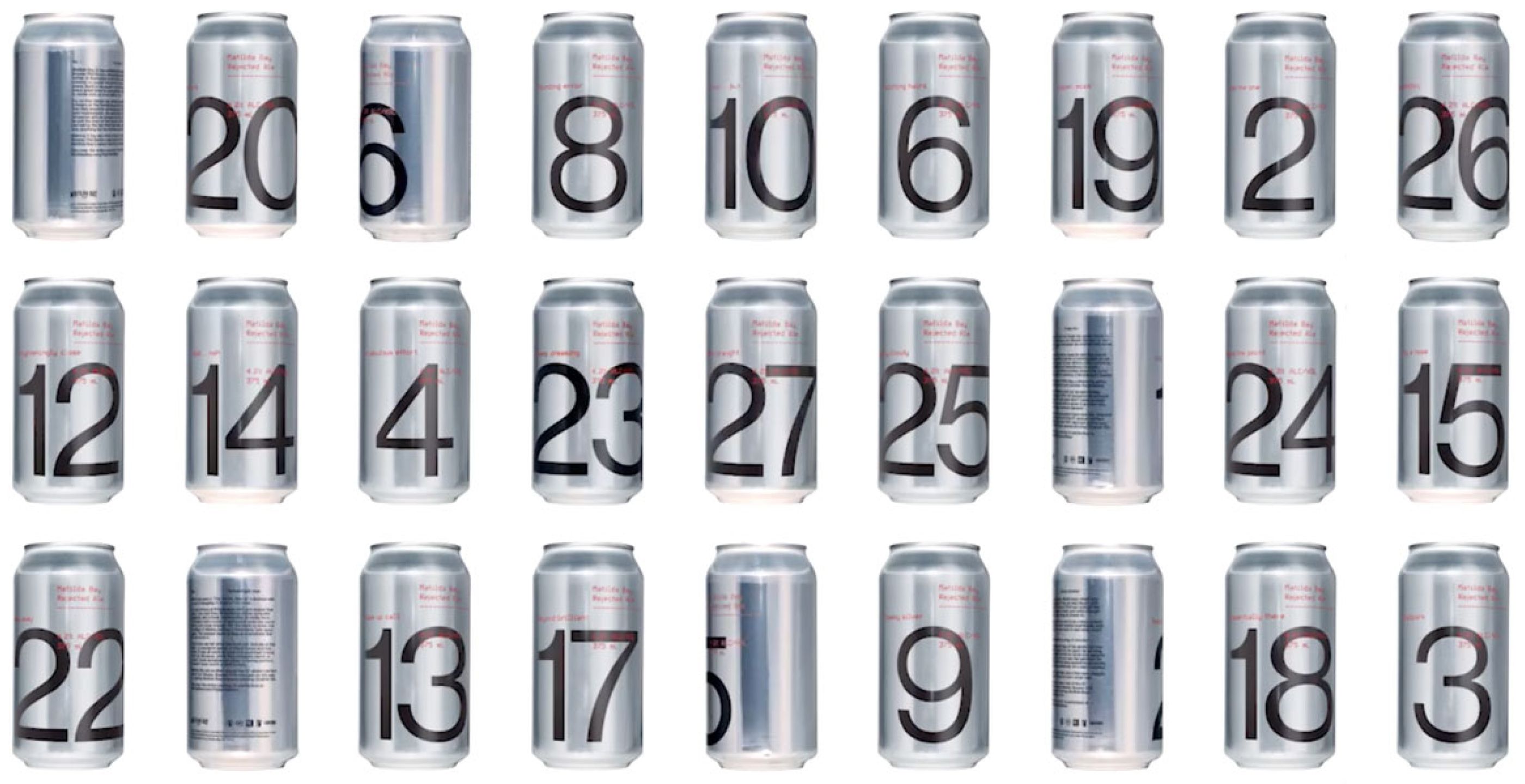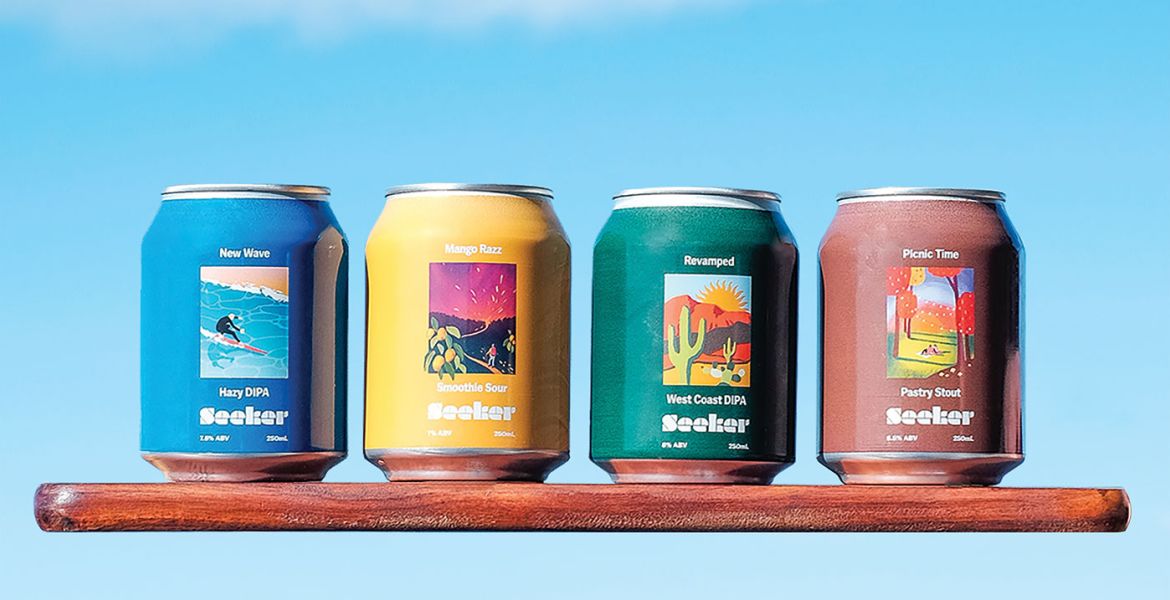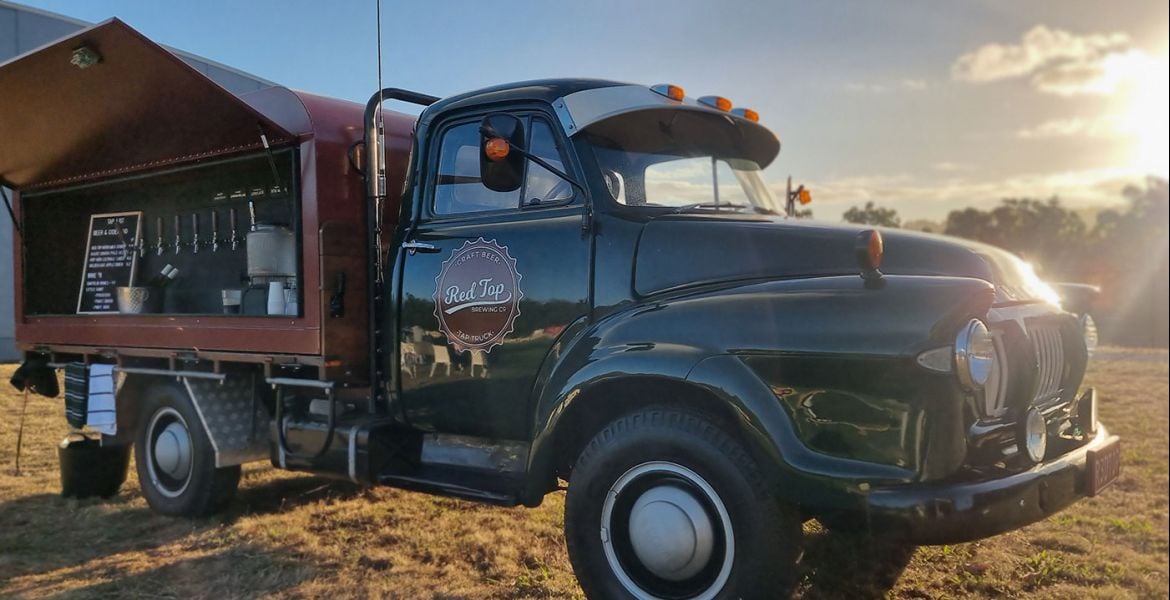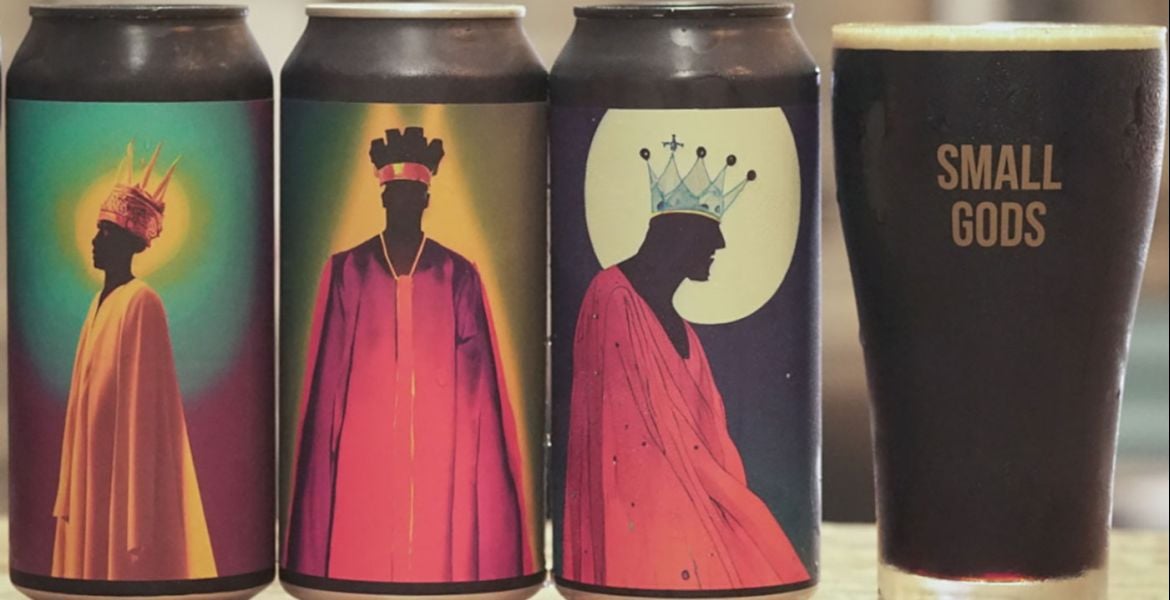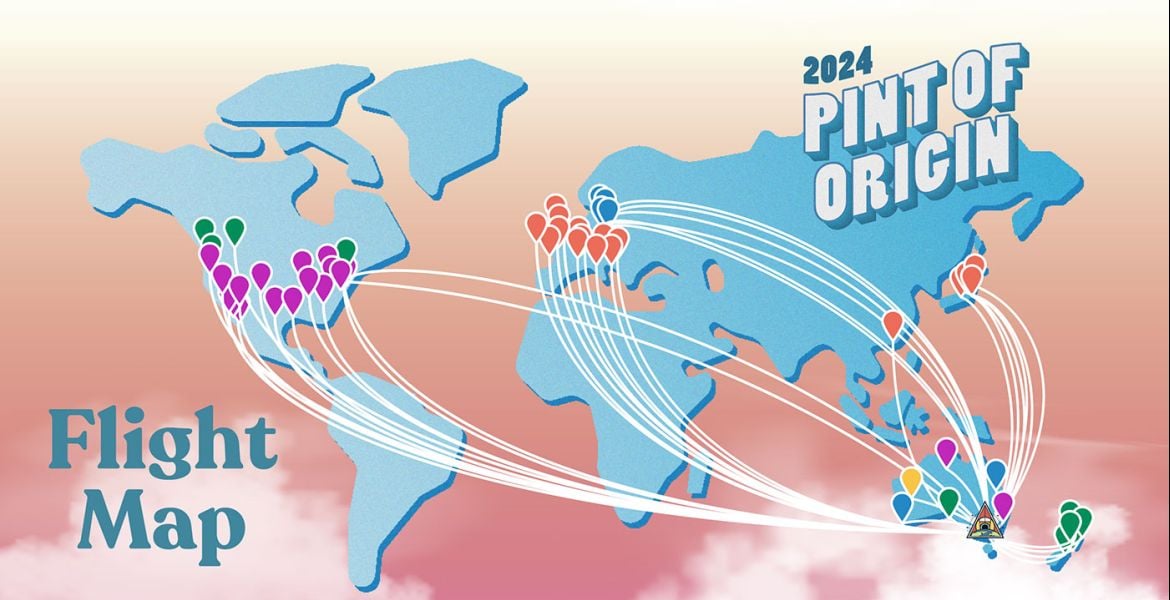Of the myriad new practices to have entered the brewing world over the past decade or two, there are plenty that would have brewers of prior generations scratching their heads. But the "one and done" approach encouraged by drinkers' seemingly insatiable desire for new, new, new would have the ghosts of brewers past turning in their graves.
Sure, most brewers still have core range and flagship releases they aim to produce consistently and finesse over time. But the prevalence of limited releases for which there's not so much as a 20 litre pilot batch trial – more a case of "come up with a recipe, bash out 2,000 litres, hope for the best" – has never been greater.
Of course, given the shared knowledge base for brewers to plunder has never been greater either, there's an ever-improving hit to miss ratio, yet the approach that led to the rebooted Matilda Bay's first new release – Original Ale, or Owl – would be anathema to the majority of contemporary brewers. While the returning founder, Phil Sexton, had a clear idea of what the beer should be, his brewing team created and tipped away 27 batches before agreeing they'd reached the one.
Now, as a means of highlighting the process, they've chosen four of the near-misses from those 27, re-brewed them, and are releasing them as mixed four-packs so drinkers can assess their choice for themselves. While the fingerprints of the brewery's marketing team can be found on the Rejected Ales – it's an eye-catching way to refocus attention on a beer launched amid Victoria's cascading lockdowns, after all – it also gives the public the chance to take part in a kind of self-guided blind tasting; well, maybe not "blind" per se, but still a rare opportunity to pit five variations on a theme side-by-side and see what the changing of one ingredient – the yeast strain, the level of dry-hopping, for example – does to what's conceptually the same beer.
"I did have a beer in mind," Phil told The Crafty Pint when we met at the brewpub before the Rejected Ales were released. "One of the great beers of the world."
It's one he first enjoyed as a young brewer in the UK in the 70s – as iconic an English pale ale as you can find; indeed, such is his fondness for the beer, he has since taken his son, Harry, who is part of the Matilda Bay brewing team, on a pub crawl across England to try it at source.
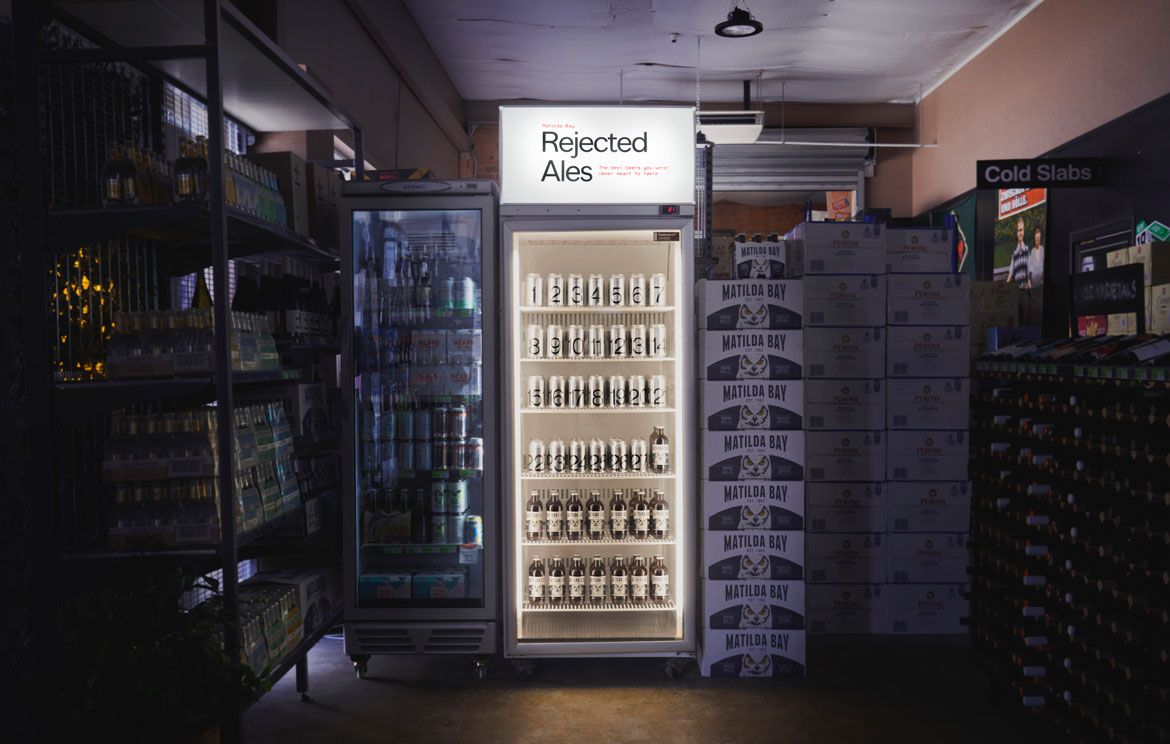
Given the brewing and pub industry in Australia isn't set up for real ales, the first new Matilda Bay beer of the 2020s was never going to be a facsimile of the beer he had in mind, however, hence using the period during Victoria's lockdowns to brew and tip away 27 versions. In each, one variant was changed at a time, and while the Rejected Ales labels tell stories about each brew rather than documenting the particular tweak in each, put them side-by-side with the beer which got the nod and you can detect the differences.
"We tried to make it with a lager yeast rather than a Northern English ale yeast," Phil says [Rejected Ale 3 if you're playing along at home], "We messed around with the hops [number 19 is 8 IBU higher than spec]. We tried it with Fuggles [number 23], but it just didn't work.
"We brewed it with a bit more colour so it's darker and looks a bit more credible [Rejected Ale 14], but it just didn't look right and you can bring in these roasty characters."
Phil refers to his time at BridgePort, in the US, where he helped design their IPA. He'd known Ken Grossman, founder of Sierra Nevada, since the days he was brewing in his garage, and says while Sierra Nevada Pale Ale – "the best damn American pale ale ever" – was an inspiration, it was just that, rather than something the BridgePort team was going to copy. And that was the case with Original Ale and its inspiration from Yorkshire.
"We knew where we were going," he says, "but we were doing 'What ifs?'."
Setting themselves the challenge of creating a new beer they believed would be in keeping with the legacy of the Matilda Bay's early years was one thing, but just one piece of the jigsaw when it comes to making the partnership with CUB work, not least as the company now has a vast portfolio of craft brands since it was bought by Asahi.
Rebuilding a brand that had drifted so far from its origins to be utterly unrecognisable was always going to be a challenge in itself; but as with many brewing companies to launch their first beers in the past couple of years, relaunching Matilda Bay from the converted Giant Steps winery in Healesville just as COVID was about to turn the world upside-down elevated that challenge to new levels.
In their favour, however, is the fact their story is unique in Australian beer – there can only be one "first modern Australian brewing company" after all – and in sticking to the ethos that made Matilda Bay what it was in its heyday they'll be hoping to cut through the noise as, fingers crossed, the world returns to some form of normality.
The marketing-led brands of latter day Matilda Bay have been banished in favour of focus on the classics. Redback continues to be tweaked for contemporary palates, with a new yeast strain arguably the biggest change from the early days. Dogbolter, now a "Winter Ale", was last week named Champion Amber-Dark Ale at Queensland's annual beer awards. Alpha – the most contemporary recipe to be plucked from the brewery's Rolodex – remains pretty much as it was when Brad Rogers first brewed it, years before leaving CUB to help found Stone & Wood.
But, away from that trio and the Original Ale, much of the brewery's focus is trained on another part of the beer world, one in which Phil sees great potential in our much-changed drinking landscape.
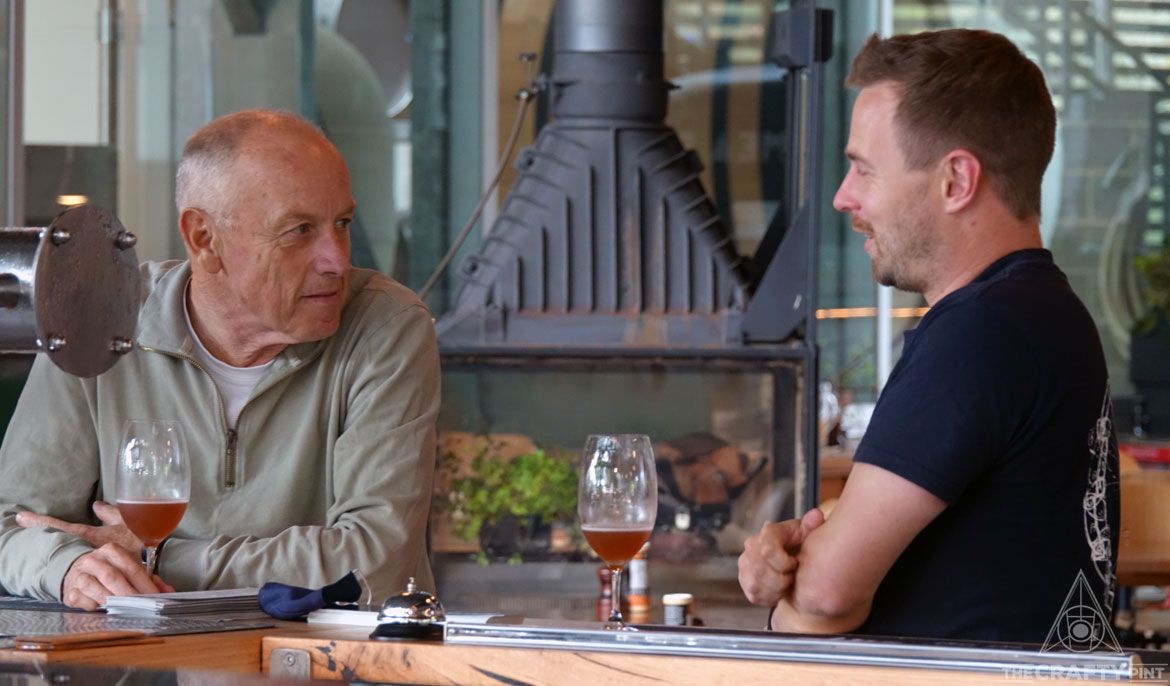
"People are looking at different beverages. They don't see the same boundaries between beer, wine and spirits that we see," he says, describing the thinking driving many people's choices today as: "I just want to drink something good. I don't want too much to drink. I want it to be credible. I want truth."
Put through the prism of his hopes for Matilda Bay, that manifests as reestablishing the classic brands as the core business on the one hand, then exploring the space between beer and wine on the other. Given they're still making Giant Steps wines under the same roof as they're brewing beers for the time being, and have access to local fruit from the Yarra Valley – not to mention Phil's decades of winemaking and the winemakers and distiller in the brewing team – it's an area they're well-placed to explore. And, as the likes of Wildflower, Dollar Bill, Two Metre Tall, Future Mountain, Molly Rose, Boatrocker – the list goes on – have shown, there is a small but growing market for such drinks.
It's this fledgling part of the operation that means it's an hour after we sit down to chat about the Rejected Ales that we actually talk about the Rejected Ales. And why there's a couple of racks of ex-Giant Steps barrels filled with a base saison six months ago across the aisle from their pilot brewery. And, for that matter, why you've always been able to try one or two saisons on tap when visiting the brewpub.
In the coming weeks, the first beers made up of a younger cherry saison and a portion of the barrel-aged saison will be released, with Phil referencing Rodenbach as an inspiration for their new project.
"It's not beer," he says of their iconic Flanders reds. "It's something in the crossover between wine and beer and cider.
"These things were perfected in the 1600s – there's nothing new. When you go to Belgium and they talk about beverages, they don't talk about wine, they talk about beer – really expensive stuff that's really beautiful."
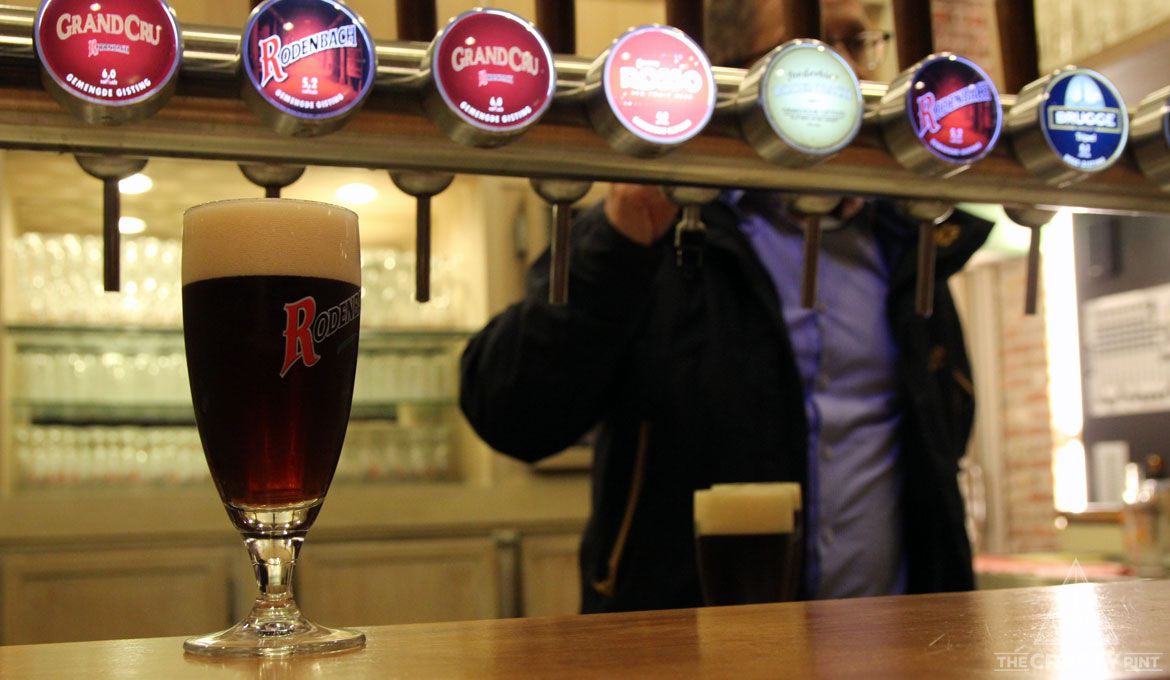
Thus they've been experimenting with different yeasts to find the best to drive beers of that ilk at Matilda Bay, those that will leave said beers "bone dry", before building from there, perhaps with fruit sourced locally.
"Wine is really easy to sell – if it's good. Craft beer is harder to sell because everyone is copying each other," he says, something he says can be countered by brewing beers that tell the stories, or showcase the produce, of their region.
"Is that not what craft brewers should be doing?
"We've got to change our thinking. Don't think in terms of beer – think in terms of alcoholic beverages. As craft brewers, we should be thinking in terms of, 'What can we do with the resources we have to get more people drinking our product?' rather than competing against other brewers."
This theme of working together crops up often in our conversation; when related to the actual liquid, it recalls past conversations with other brewing company founders with winemaking backgrounds too, such as Brad Rogers and Two Birds' Jayne Lewis.
"Balance and harmony," is what he says they were looking for through the 27 brews that became Original Ale. "What's wrong with balance rather than chasing extremities?"
For those drinkers chasing high ABV beers featuring extreme dry-hopping rates, or imperial sours designed to turn your taste buds inside out or smother you with fruit purée, it might seem an odd approach – rather old-fashioned, even. Yet if you're setting out to brew classics, or indeed beers inspired by classics from around the world, that's what brewers of the best have achieved over decades or centuries, whether that's Rodenbach's reds, Sierra Nevada's Pale Ale, the wheat beers or Bavaria, or Timothy Taylor's Landlord.
It's why such beers stand the test of time, seemingly impervious to changing tastes. Now you can judge whether Phil and the Matilda Bay team's choice as they hope to build another Australian classic.
You can read about all of the Rejected Ales on the Matilda Bay website.



